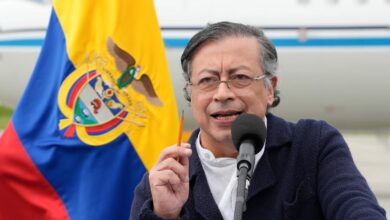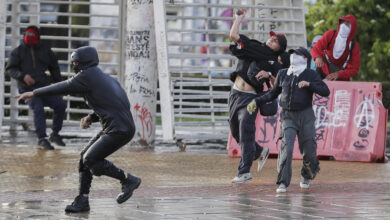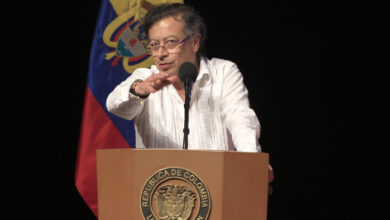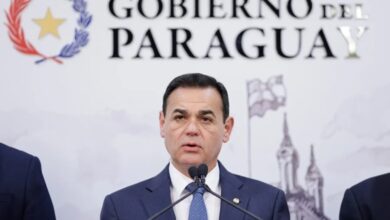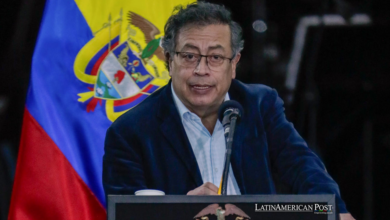Leyva Denies Plot Against Petro Amid Institutional and Diplomatic Crisis in Colombia
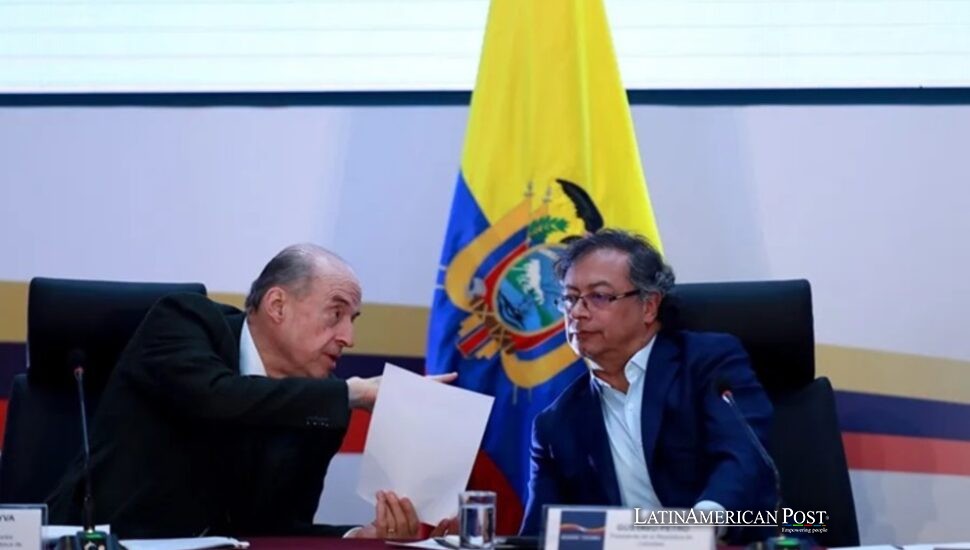
With audios leaked in late June, former Foreign Minister Álvaro Leyva claims that the accusation of a conspiracy against President Petro is “absolutely ridiculous,” as the Prosecutor’s Office and the opposition demand clarity on contacts with illegal actors and U.S. political figures.
Leaked Audios and Leyva’s Statements
The scandal broke with the leak of audios in which former Foreign Minister Álvaro Leyva suggests a possible early departure of President Gustavo Petro before his term ends on August 7, 2026. The recordings, made without Leyva’s consent, reveal conversations where he discusses a potential governmental transition through means other than elections. Leyva defends his words, arguing that he was not promoting a coup d’état, but rather proposing a constitutional interpretation that could open space for institutional dialogue, even mentioning the possibility of Vice President Francia Márquez stepping in should circumstances require it.
In subsequent interviews, Leyva insisted that his comments were taken out of context and edited to stir controversy. He stated that he has had no contact with illegal armed groups or international political actors for destabilizing purposes. According to him, any suggestion of an organized conspiracy to remove President Petro is absurd and baseless. He also emphasized that he has no personal motivation or political ambition to assume power.
The former minister explained that his reflections were more about hypothetical scenarios and the need to preserve institutional order in the event of a political crisis. He stated that the country is going through a delicate phase and that it is time to strengthen constitutional debate rather than deepen polarization with unfounded accusations. His defense has been firm: “What is being sold as a conspiracy is actually a legitimate political discussion.”
Political Reactions: From Condemnation to Caution
The political class reacted swiftly and firmly to the leak. Various sectors, from both the government and the opposition, agreed in rejecting any attempt to interrupt the presidential mandate through non-institutional means. Historical figures, opinion leaders, and political parties spoke out, demanding clarity about the events, and some even called for judicial intervention to determine accountability.
Vice President Francia Márquez, mentioned in the audios as a possible successor to Petro in the event of an early departure, categorically denied any knowledge of such a plan. She also expressed her support for legality and for the continuation of the current government. Her political team emphasized that any mention of her name in that context is a malicious manipulation.
President Petro publicly responded, saying he felt betrayed by Leyva, whom he had considered a trusted ally within his administration. In his statements, Petro asserted that since the beginning of his presidency, he has perceived threats to his integrity and institutional stability, and this case only confirms his concerns. He called on the authorities to act transparently and underscored that Colombia’s democracy must be safeguarded by all political actors.
The crisis coincided with a major shake-up within the cabinet. Laura Sarabia, who had assumed the role of foreign minister after Leyva’s departure, resigned amid the scandal. Her resignation added to a string of high-profile exits from Petro’s administration in recent weeks, further fueling perceptions of internal fragmentation within the presidential circle.
Judicial Developments and Ongoing Investigations
Following a formal complaint from President Petro’s legal team, the Prosecutor’s Office launched an investigation to determine whether crimes such as conspiracy or treason might have occurred in connection with Leyva’s leaked audios. Investigators are also examining potential links between Leyva and U.S. lawmakers, as well as representatives of illegal armed groups who may have served as interlocutors in a broader destabilization strategy.
Leyva’s defense team maintains that the recording was obtained illegally and that its contents were manipulated to support a narrative that doesn’t reflect reality. They argue that any judicial use of the audios would violate constitutional principles and due process. Nevertheless, the Prosecutor’s Office contends that the seriousness of the statements and Leyva’s high-profile position justify a thorough investigation, even if that means evaluating the evidentiary validity of leaked material.
The case remains in the preliminary phase, but tensions between branches of government are already evident. The Supreme Court and the Council of State have called for respect for due process, while sectors of the public demand faster action and clear resolutions. In Congress, some lawmakers have proposed creating a special commission to assess risks to governability and suggest measures to protect institutional integrity.
The investigation is expected to last several months and will likely summon key government figures to testify, including the vice president and Leyva’s former collaborators. The outcome will be crucial not only for Leyva’s legal future but also for the stability of Petro’s administration.
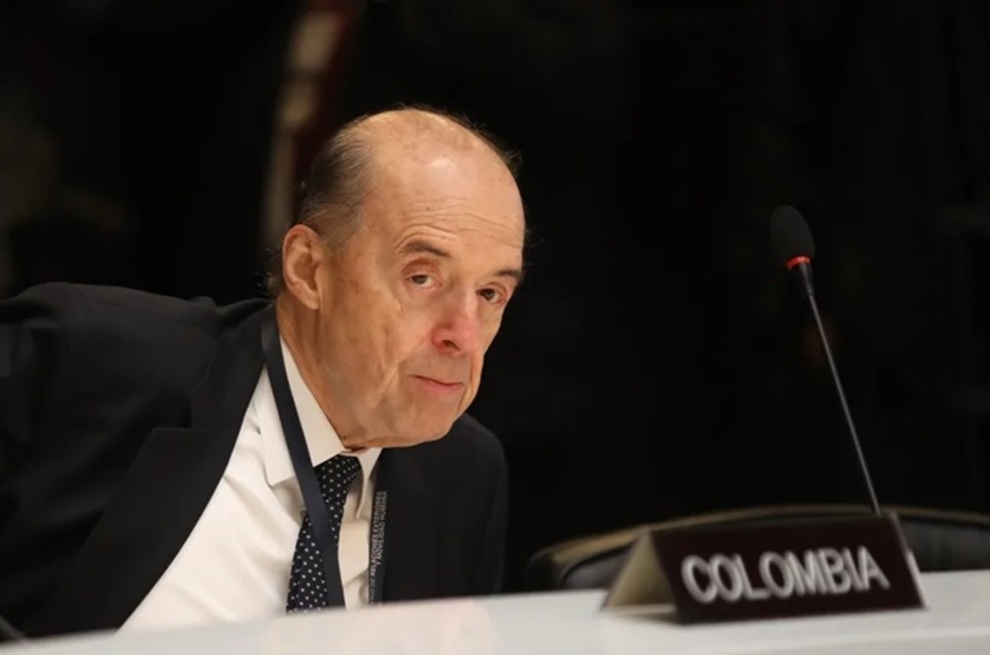
EFE@Paolo Aguilar
Diplomatic Strains with the United States
Alongside the internal political crisis, the situation escalated internationally with an unprecedented diplomatic clash between Colombia and the United States. The U.S. government temporarily withdrew its ambassador from Bogotá in response to statements and actions it deemed “concerning” from the Colombian government. In a reciprocal move, Colombia also recalled its ambassador from Washington for consultations.
This diplomatic exchange reflects a breakdown in mutual trust at a critical moment for bilateral cooperation on security, anti-narcotics efforts, and trade. While both governments have stated that the relationship is not severed, the tensions have created uncertainty among business leaders, multilateral organizations, and the international community at large.
President Petro reaffirmed his commitment to honoring bilateral agreements and demanded that his administration not be subjected to foreign pressure or interference. However, critics warned that the deterioration of U.S.-Colombia relations could have long-term economic and strategic consequences, particularly if the lack of direct diplomatic dialogue persists.
This diplomatic fallout, intertwined with suspicions about Colombian figures allegedly interacting with U.S. lawmakers, adds a geopolitical dimension to an already complex internal crisis. The signals from Washington have been interpreted as a warning, though not as a definitive break in relations.
A Polarized Nation Facing Multiple Crises
The Leyva affair has deeply affected public opinion and intensified the political polarization that currently grips Colombia. From the government’s side, there is growing emphasis on the narrative that certain factions are intent on undermining the administration at any cost, while opposition sectors denounce political persecution and the instrumental use of state institutions to silence dissent.
Analysts and commentators have pointed out that the real issue lies in the fragility of government coalitions, lack of internal control, and the manipulation of “betrayal” narratives to manage political tensions. Others argue that the incident reveals a divided elite disconnected from the public’s real concerns, further alienating citizens from traditional political parties.
Also Read: Was It a Coup—or a Show? Bolivia Still Doesn’t Know
Leyva’s political future—as well as that of President Petro and their respective allies—will hinge on how the investigation unfolds and what decisions are made in the coming weeks. In a country with a history of coups, backroom deals, betrayals, and half-finished reforms, the former foreign minister has become a symbol of the contradictions and ambiguities that currently define power in Colombia. Meanwhile, citizens remain focused on the courts, Congress, and diplomatic offices, hoping for answers that go beyond speeches and microphones.

